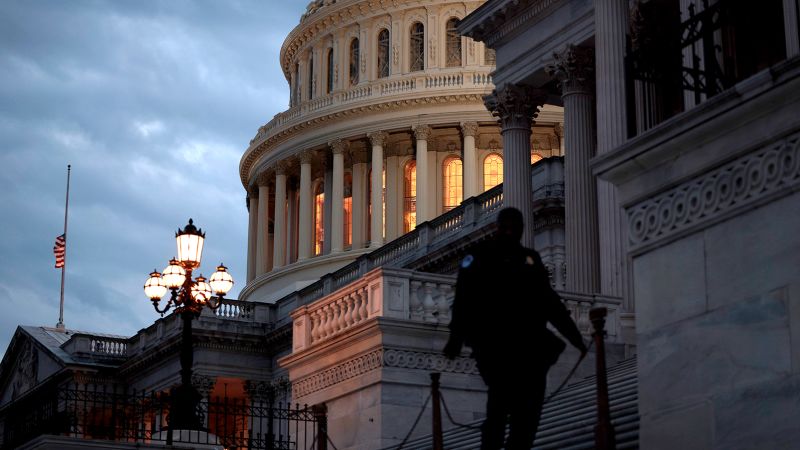

CNN
—
Drop an object from the air with nothing beneath it, and it will fall to the ground. Yes, sometimes a wind gust can keep it in the air for a little bit, but eventually gravity does its work.
Political gravity often works in very much the same way. Candidates and parties can defy it for a period of time, but eventually they come back to Earth.
That seems to be the way the 2022 midterm elections are unfolding over the last few weeks in both the House and the Senate, as Republicans have gained ground with a little over two weeks to go until Election Day.
Republicans now hold, on average, a 2-point advantage on the generic congressional ballot. Democrats were up by a point on this measure a month ago.
The shift in favor of Republicans signals basically a return to where we were at the beginning of the summer before the Supreme Court overturned Roe v. Wade in late June. Back then, Republicans were up by 3 points.
It shouldn’t be too surprising that Democrats are falling behind. President Joe Biden’s approval rating is stuck in the low 40s. The top issue of the campaign for voters is the economy and inflation, and Republicans are more trusted on those issues in the polling by double digits.
Abortion, which had climbed on the list of the most important problems facing America, has fallen as the overturning of Roe heads farther into the rearview mirror.
A Republican lead on the generic ballot of 2 points would likely be more than enough for them to win the House. It would suggest a net gain of somewhere in the neighborhood of 15 to 25 seats based upon history, and they only need a net gain of 5 seats to flip the chamber.
Of course, the Senate can sometimes be a different story. There are only 35 seats up for election compared to 435 in the House. This means that while any one good or bad candidate isn’t likely to make too much of a difference in House ratings, a good or bad candidate can make all the difference in the Senate.
Take a look at what are arguably the five most important Senate races: Arizona, Georgia, Nevada, Pennsylvania and Wisconsin. Democrats very likely need to win three of five of these races to maintain control of the Senate.
At the beginning of September, Democrats were leading in all five by anywhere from 2 (Georgia) to 7 points (Arizona) on average. A lot of us were writing about Republicans having a candidate problem.
Today, Democrats are only up in three of these five, according to an average of polls. Their largest lead is 4 points (in Arizona), and they trail by a point in Nevada and by 3 points in Wisconsin.
All of these races are within the margin of error, and it is conceivable that either party sweeps the board in them.
Overall, what had been a small Democratic advantage in sophisticated statistical models and the betting markets for Senate control is now seen closer to a tossup or even a Republican edge.
Political gravity seems to be having its way.
The question now is if Democrats can stop the Republican momentum in the race for the Senate. But they only have two weeks to do it to avoid losing both chambers of Congress.